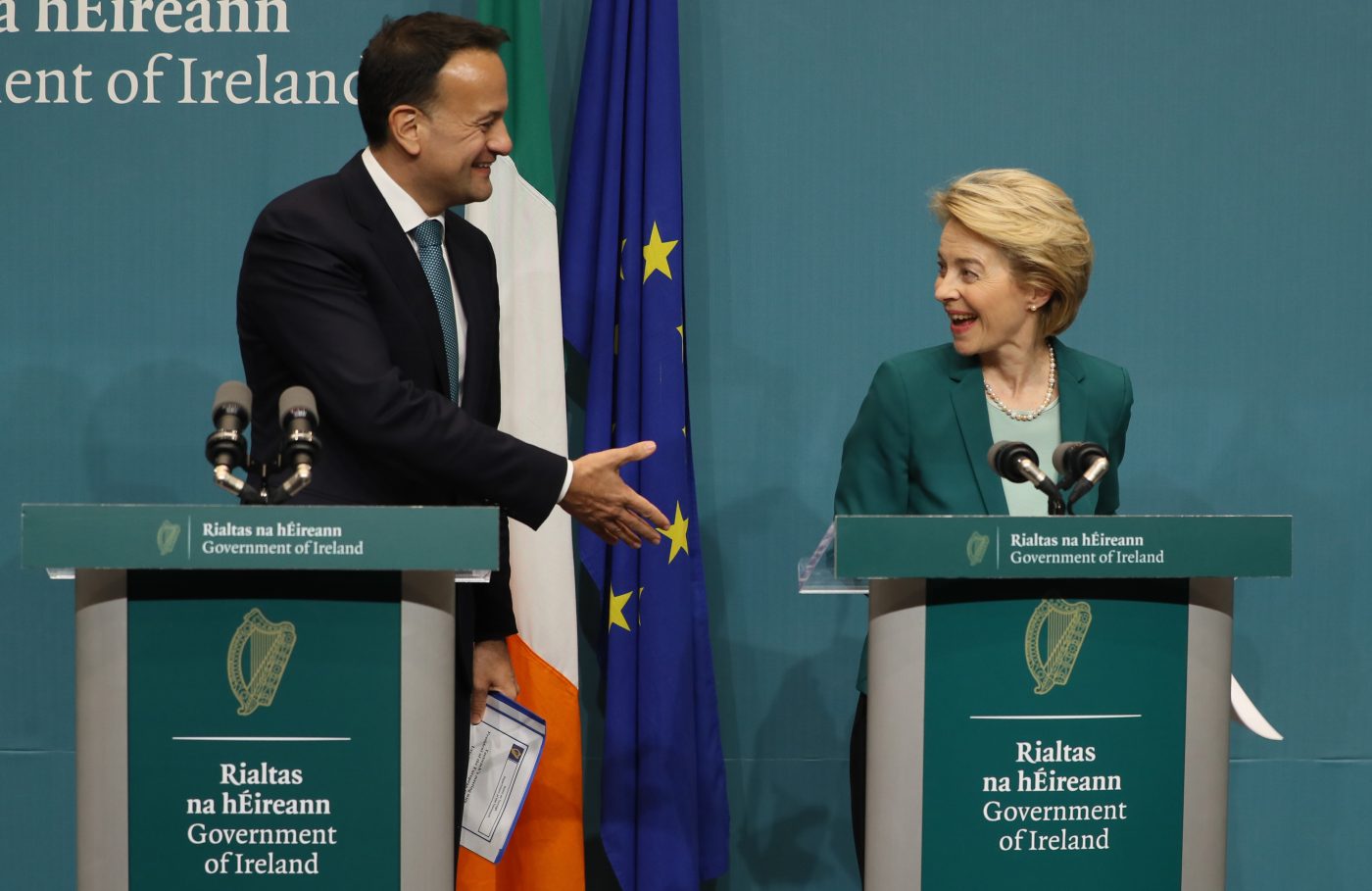Until 2016, a triumvirate of large countries, France, Germany, and the UK, defined the EU’s political and economic balance. Now the UK is gone — and the bloc’s remaining free marketers need to block protectionism, tame overregulation, and fight for open markets, particularly in growing digital industries.
France and the UK long tugged in opposite directions, one instinctively protectionist, one by its nature open and liberal. The Germans sat in the middle, forging compromise, and sometimes playing the two sides against each other when it suited.
With the UK now gone, the balance has tipped to the French protectionist agenda. Over the past few years, the EU has adopted far-reaching digital regulations, which undoubtedly target US companies. Regulation is needed, but it must be fair and proportionate. The EU is now on the verge of tearing up its state aid rules to prop up national European champions. This will fundamentally undermine the Single Market as we know it.
While all of this has occurred, the EU Member States most adversely impacted, such as Ireland, the Nordics, and Baltics, have failed to prepare, or respond, in a meaningful way. Overall, they have been asleep at the wheel.
A new, proactive narrative from these countries, particularly my home nation Ireland, is required. We have rebounded from the financial crisis, and more recently the pandemic, in large part to our ability to attract US multinationals, across a range of sectors, from pharmaceuticals to software.
Globally recognized names including Alphabet, Amazon, Apple, Facebook, IBM, Intel, Microsoft, Oracle, Salesforce, Tencent, and many more have chosen Ireland for major European operations. Ireland is home to 16 of the top 20 global tech companies and the top 3 enterprise software providers. More than 106,000 people are employed in the ICT industry.
The Irish government needs to support these investors. Support means slowing down and working to block the worst excesses envisioned in Brussels. If Europe is going to copy the US and subsidize semiconductor production, as looks likely, then it must make sure that its richest and biggest member Germany is not allowed to privilege its own production. All of the recent announcements of new semiconductor fabs in Europe favour Germany, which is promising lavish state subsidies to entice these investments.
Enforcement of new rules must not be outsourced. Companies invested in Ireland because they trusted Irish regulators. Instead, they now fear being overruled by the larger member states.
This risk is not theoretical. Meta, the owner of Facebook and Instagram, has its headquarters in Dublin. After the imposition of Europe’s new GDPR privacy rules, the company prepared a compliance plan. Irish regulators approved it. But the European Data Protection Board, pushed by German and French privacy zealots, overruled the decision and fined Meta hundreds of millions of euros — calling into question its entire business model of targeted advertising.
Apple has been another victim. The European Commission fined the company more than €10 billion for underpaying taxes. Apple appealed — and won before the EU’s General Court. Ireland attracts inward investment not just because of low taxes, but because of its pro-business attitude. It must fight to avoid discriminatory digital taxation imposed by continental Europe.
The EU must not be allowed to throttle its start-up successes, either. As the US moves ahead with the artificial intelligence-based ChatGPT, Europe is poised to adopt a new AI law, which could slow down the adoption of this revolutionary technology.
Despite the fundamental shift to the underlying power dynamics within the European Council and Council of the EU, the current European Commission headed by Ursula von der Leyen may be described as the most transformative and impactful in recent memory. Guided by her political guidelines, her Commission has been aggressive in tackling the economic, social, and environmental challenges of the twin transition, towards a digital and green European Union.
The current European Parliament and European Commission’s terms are set to expire in May 2024, opening the debate about the shape of the coming 2024-2029 legislative term. Ireland and its allies should step up and forge a pro-business, pro-tech agenda.
Lucinda Creighton is a Non-resident Senior Fellow with the Digital Innovation Initiative at the Center for European Policy Analysis. She is a Barrister, qualified New York attorney, former Irish Minister for European Affairs, Deputy Foreign Minister, and Member of the Irish Parliament.
Bandwidth is CEPA’s online journal dedicated to advancing transatlantic cooperation on tech policy. All opinions are those of the author and do not necessarily represent the position or views of the institutions they represent or the Center for European Policy Analysis.





